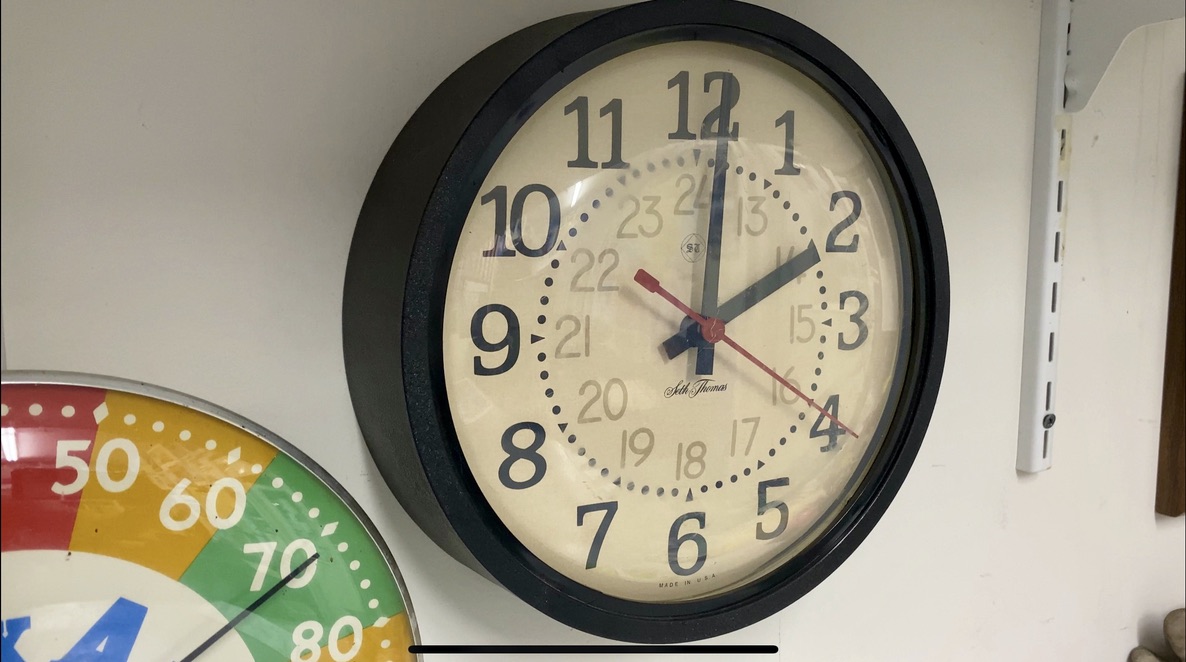From time to time I have written humorous columns about the change to and from Daylight Saving Time. For the past decade (give or take an hour), I have lamented the semi-annual “springing” and “falling” most of us must do. Today I write about the unusually swift passage of a bill in the Senate intended to make Daylight Saving Time permanent.
Years ago, in “Fall Back, Spring for Words” I wrote about the history of Daylight Saving, including one of the early proponents of the concept of saving time and pennies, Ben Franklin. I have mused on the difficulties of waking up on time after the spring reset, and the surprise of arriving early for church one Sunday morning when I forgot to change my clock back in the fall.
My columns have discussed a couple of states that opt out of the tick-tock back-and-forth and how some Native American territories have chosen to handle the matter of time. I’ve also shed light on the Amish disdain for Daylight Saving Time, which they refer to as “Fast Time.”
The French-fry Connection
I even wrote about the French-fry connection that motivated the Idaho potato industry to prompt federal lawmakers to extend Daylight Savings Time in 1987 as part of another bill. I received recognition from the National Society of Newspaper Columnists for that essay, “Fast Time and Fast Food.”
But now, instead of writing about years-old changes, I get to write about proposed changes to Daylight Saving Time in real time: last Tuesday, the United States Senate swiftly passed a bill intended to make Daylight Savings Time permanent in 2023. If the bill becomes a law, it would change more than just clocks.
The Sunshine Protection Act was approved unanimously last week by the Senate via a rarely successful process called “unanimous consent,” after which the Senators sang a rousing, bi-partisan rendition of “You Are My Sunshine.” I’m kidding, of course, but wouldn’t that make for an entertaining viral C-SPAN TikTok?
Expedited Process to Pass the Bill
The Senate quickly passed the time-based legislation through the use of an expedited process known as “unanimous consent.” The bill’s sponsors, including Senator Marco Rubio, didn’t waste any time on Tuesday.
In less than a minute, Senator Kyrsten Sinema, who served as the Senate chair overseeing the motion that day, gave the floor to Rubio who then quickly requested and received an unopposed unanimous consent to the bill.
It is quite shocking to watch the process quickly unfold on the C-SPAN video. The accelerated passage of this bill was no accident; it seemed like a scripted, well-orchestrated play.
On the video, a Senate clerk can even be seen and heard acting as floor director, feeding Sinema’s every line to her from a script, which she dutifully and quickly repeated. When the bill passed unopposed, it was she to whom Sinema turned with a grin, motioned with a double fist pump, and exclaimed “Yes!” Sinema is a democrat from Arizona, which is one of two states that does not adhere to Daylight Saving.
The success of the unanimous consent process left more than a few in Congressional circles stunned, according to Buzzfeed News, which reported that some Senators were unaware that the bill would even be voted on Tuesday. So how did it slip past them? (Column continues below video)
Timing is Everything
Unanimous consent is routinely requested by bill sponsors, but rarely approved. It only requires one Senator to object to trigger the committee hearing process, which can be slow and tedious.
You may recall the animated “Bill” of Schoolhouse Rock’s “How a Bill Becomes a Law” lamenting the long and arduous process, sitting dejectedly outside the doors of committee hearings. I don’t recall a scene with him being handed off to do and end-run around legislators using unanimous consent.
Buzzfeed News cites an unnamed Senate source “with knowledge of the situation” that said the staff of Senator Tom Cotton, who opposes permanent Daylight Savings, “never told him it was happening.”
Were Senators asleep on the job since the bill was passed two days after the switch to Daylight Savings went into effect?
Or did Senate staff members mistake the bill’s unanimous consent alert for a routine reminder to adjust clocks for Daylight Saving?
Does this successful sleight of clock-hand in the Senate signal the advent of an expedited approach to passing bills, or does it sound an alarm about the dangers of unanimous consent to the legislative process?
Only Daylight Saving Time will tell.
 Lynn Rebuck is an award-winning columnist whose work appears regularly in LititzDailyNews.com. Her columns have received recognition from the National Society of Newspaper Columnists and the Pennsylvania NewsMedia Association.
Lynn Rebuck is an award-winning columnist whose work appears regularly in LititzDailyNews.com. Her columns have received recognition from the National Society of Newspaper Columnists and the Pennsylvania NewsMedia Association.













